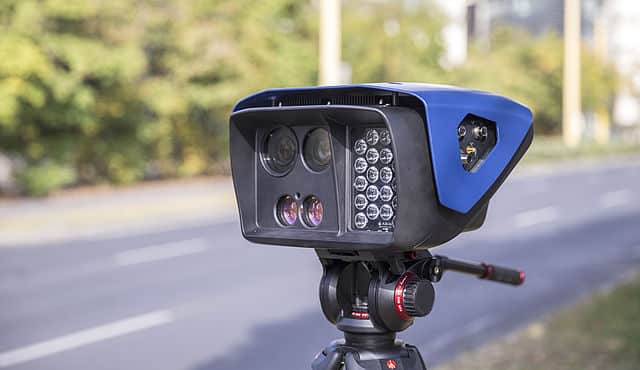Have you ever wondered what police in Florida see when they check your license plate? It’s more than just a simple act. It opens a window into your and your vehicle’s details. You might be surprised by the information they can access, from your vehicle’s registration to possible criminal records.
When a police officer checks your license plate in Florida, they’re not just looking for stolen cars. They’re accessing a system that gives them vital information. This process is key for traffic stops, making officers and the public safer.
License plate scanning technology has changed a lot. Now, systems can read plates from far away, even if cars are moving. This makes police work easier and faster, helping them spot issues quickly.
Every driver should know what police see during a plate check in Florida. It’s not just about knowing your rights; it’s about comprehending the information law enforcement has during routine checks.
Contents
- 1 License Plate Scanning Technology
- 2 What Do Police See When They Run Your Plates In Florida
- 3 Common Reasons for License Plate Checks in Florida
- 4 License Plate Readers Changed Everything
- 5 FAQ
- 5.1 What information do police see when they run your license plate in Florida?
- 5.2 How does license plate scanning technology work?
- 5.3 What are some common reasons police run license plate checks in Florida?
- 5.4 How prevalent are license plate scanners in Florida?
- 5.5 How have license plate readers impacted law enforcement in Florida?
- 6 Source Links
License Plate Scanning Technology
License plate scanning has changed how police spot vehicles on the road. It lets police read plates from afar, even when cars are moving. Let’s see how it works and what its effects are in Florida.
What is License Plate Scanning?
License plate scanning uses cameras and software to read numbers and letters on plates. It’s getting more common in police work, with many cars now having scanners.
How License Plate Readers Work
Automated license plate readers take photos of plates with special cameras. Then, the software turns these images into text. This info is checked against databases for things like stolen cars or warrants.
Prevalence of License Plate Scanners in Florida
Florida is big on license plate scanning. Many police, like the Sebastian Police Department, use Flock Safety Falcon cameras. These cameras can spot vehicles by their make, model, color, and more, even without a plate. The info goes to databases at local, state, and national levels.
- 93% of police departments in large cities use ALPR systems
- 75% of departments in cities with 100,000+ population use this technology
- ALPRs are used throughout Florida by law enforcement agencies
While it helps police, license plate scanning is watched closely to protect privacy. Florida has rules to ensure it’s used right, balancing safety and privacy.
What Do Police See When They Run Your Plates In Florida
When police in Florida check a license plate, they collect a lot of information. This information helps them prepare for stops and make smart choices during traffic stops.
Vehicle Registration Details
Police look at the car’s make, model, year, and VIN and check whether the registration is current. A report might show past accidents or damage. This helps spot stolen cars or those linked to crimes.
Owner Information
The system shows the owner’s name and address. Officers can check if the owner has a valid license and look at insurance records to see if the car is insured.
Criminal Database Access
Police can quickly search criminal databases linked to the license plate. This search might find past crimes or current investigations tied to the car or its owner.
Outstanding Warrants and Citations
The system warns officers about any warrants in Florida for the vehicle or its owner, including unpaid tickets or other citations. This information tells police if they should be careful when approaching the vehicle.
But remember, while police have this info, your privacy is still protected—the Driver’s Privacy Protection Act limits who can see your details through license plate checks.
Common Reasons for License Plate Checks in Florida
Florida law enforcement uses license plate checks for many reasons. These checks are key in gathering information from traffic stops and preventing crimes across the state.
One main reason is to find stolen vehicles. Police scan plates to spot stolen cars, which has helped recover stolen cars and catch thieves.
Checks also help find people with outstanding warrants or unpaid fines. Officers can see if a car’s owner has legal issues by scanning plates.
Plate checks give significant clues after hit-and-run incidents or crimes. They help track down vehicles linked to crimes, which in turn helps prevent more crimes.
Checks are also used for missing person alerts. This tech can find vehicles linked to the case when looking for missing kids or endangered people.
- Verify vehicle registration and insurance status
- Identify vehicles linked to criminal activities
- Support ongoing investigations
- Enhance overall public safety
License plate checks have made a big difference in places like Indian River County. They found six stolen vehicles and four stolen license plates in just three months.
License Plate Readers Changed Everything
License plate readers have changed how police work in Florida. They scan thousands of plates every minute, creating a huge database that helps police in many ways. With over 6.5 billion scans, this tech is a big help for keeping people safe.
These readers send out alerts in real time, making police quicker to respond. In Lake City, alerts from these devices told police about gunfire, leading to quick arrests. Thanks to these alerts, the Port Orange Police in Volusia County caught a suspect with many warrants. This fast information has been key in finding missing people and stolen cars.
But, there are worries about privacy with this tech. In California for exmple, only a tiny part of the data was helpful for safety. Florida is now setting rules to balance police work with privacy rights. As this tech improves, people keep talking about its effects on crime and our rights.
FAQ
What information do police see when they run your license plate in Florida?
When police in Florida check your license plate, they get a lot of info. They see your vehicle’s registration and who owns it and can check criminal records. They can tell if the car is stolen, if the owner has warrants, or if it’s linked to crimes.
How does license plate scanning technology work?
License plate scanning uses cameras and OCR tech to read license plates. The information is then entered into databases at the local, state, and national levels, including the FBI’s National Crime Information Center database.
What are some common reasons police run license plate checks in Florida?
Police in Florida check license plates for many reasons. They check if a car is stolen, find vehicles with warrants or unpaid fines, and solve hit-and-runs. They also use it to find missing people or those in danger.
How prevalent are license plate scanners in Florida?
Many police departments in Florida use Flock Safety Falcon cameras. These solar-powered cameras can spot vehicles without seeing the license plate. Places like Indian River and Manatee counties use this tech a lot to help police work better.
How have license plate readers impacted law enforcement in Florida?
License plate readers have made solving crimes in Florida much faster. They help solve over 700,000 crimes a year across the U.S. This tech has led to quicker responses to shootings, faster catching of wanted people, and better finding of missing persons. It makes everyone safer.
Source Links
- What Information Do Police Get When They Run Your Plates? – The Clark Law Office
- How to Pump the Brakes on Your Police Department’s Use of Flock’s Mass Surveillance License Plate Readers
- What Do Police See When They Run Your Plates?
- What you need to know about automatic license plate readers
- Can Police Check if You Have Insurance by Running Your Plates? – Jay Trucks & Associates, P. C. Blog
- What Can Someone Do With Your License Plate Number?
- Motor Vehicle Licensing FAQs | DOR
- License Plate Recognition Systems
- Automated License Plate Readers
- Automatic License Plate Readers: Legal Status and Policy Recommendations for Law Enforcement Use
Featured image: Cameramann, via Wikimedia Commons

